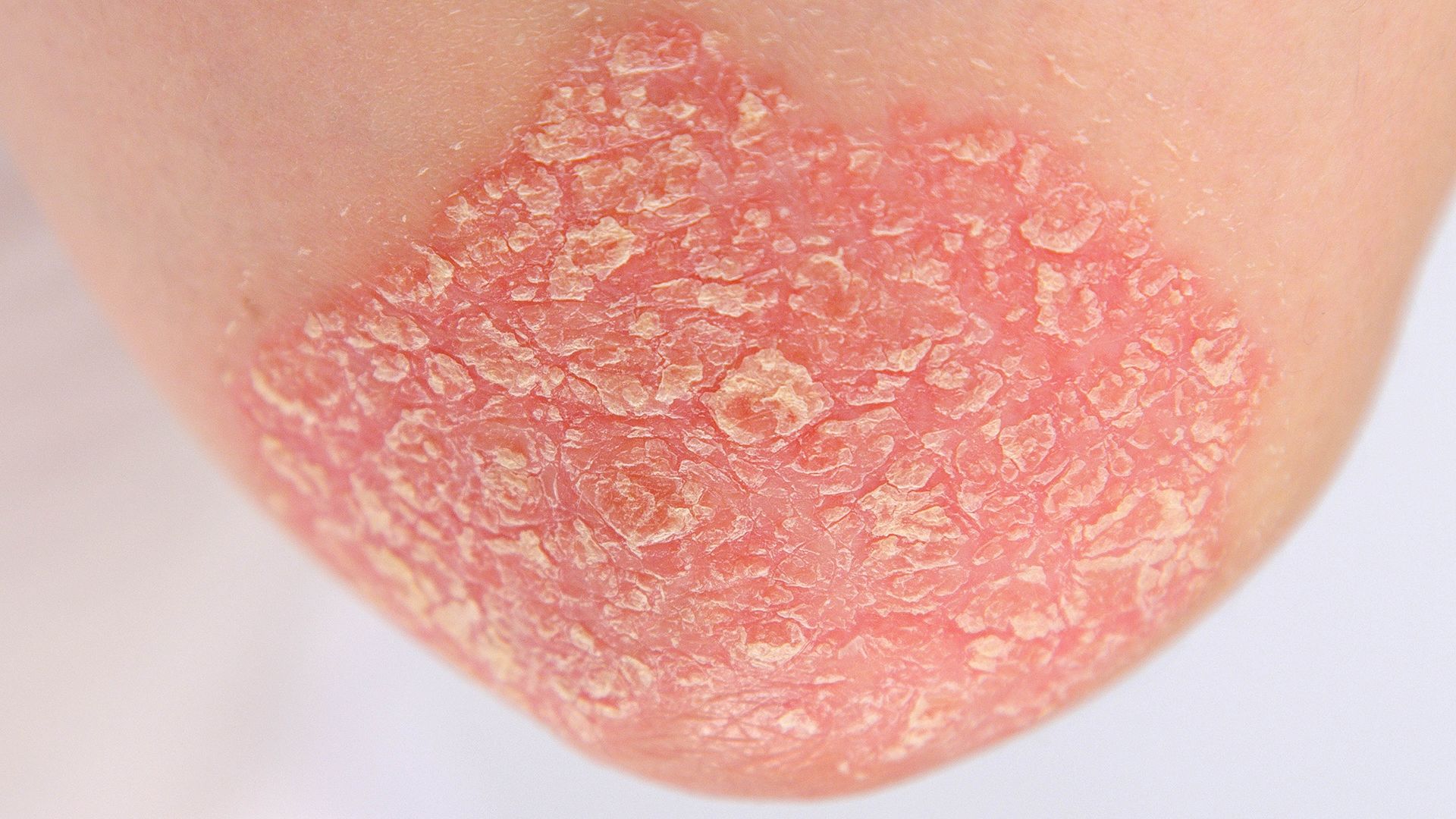Psoriasis is an autoimmune disease that can cause a variety of skin lesions, and is also closely associated with a form of arthritis called psoriatic arthritis. Plaque psoriasis is the most common form. With plaque psoriasis, an abnormal immune response speeds up the growth of skin cells in the deeper layers of the skin. As these skin cells push toward the surface of the skin, they form thickened patches that are red, have a silvery scaled appearance, and can be itchy and painful. The condition can be frustrating to manage, and can take a toll on a person’s well-being and mental health.
Though there is no cure for psoriasis, there are numerous treatments available that can help reduce the severity of symptoms. These treatments include a variety of topical medicines, phototherapy, oral medicines and injectable medicines. Additionally, following self-care tips like the ones below may help you control symptoms and prevent flare-ups.
- Bathe the right way. Limit yourself to one shower or bath a day, and keep your time in the water limited to 5 to 15 minutes. Avoid hot water, harsh soaps and scrubs, and washcloths or loofahs—these can be too harsh on your skin and can make symptoms worse. Instead, use lukewarm water, gentle soaps that contain added oils and fats, and lather yourself with your hands. To dry off, blot with a towel, but leave your skin feeling damp (this will help with moisturizing, which is our next tip).
- Use moisturizer. Immediately after bathing, apply a heavy, ointment-based moisturizer while your skin is still moist. For very dry skin, oils may be preferable—they have more staying power than creams or lotions. During cold or dry weather, you may need to apply moisturizer several times a day.
- Maintain a healthy weight. While the exact relationship between psoriasis and obesity is not fully understood, it is known that people with psoriasis are at a greater risk of being obese, and it is believed that being obese may promote inflammation in the body and make psoriasis worse. Healthcare providers recommend psoriasis patients maintain a healthy weight, and take steps to lose weight if they are overweight or obese. Maintaining a healthy weight will also reduce the risk of other health conditions.
- Exercise. Exercise can be hard for anyone, and can be made harder when you are managing a condition like psoriasis. But exercise has numerous benefits, including weight management and lowering the risk of other diseases (like heart disease and type 2 diabetes) and lowering stress. The National Psoriasis Foundation recommends that patients with psoriasis get a minimum of 30 minutes of moderate-intensity exercise five times a week, plus perform strength-training exercises.
- If you smoke, quit. Smoking appears to increase the severity of psoriasis, and also increases your risk of other serious health problems.
- Monitor your stress levels. Stress can trigger psoriasis symptoms, so it's important for psoriasis patients to find healthy ways to manage it. Try therapy or other types of stress-management techniques, such as meditation, yoga or exercise.
- Find a support group. Consider joining a psoriasis support group; you may find comfort in sharing your experiences and struggles and meeting other people who face similar challenges.
- Get educated. Do your research on psoriasis, treatment options and possible triggers of the disease. Share what you know with your family and friends to help them better recognize, acknowledge and support your efforts in managing the disease.
If you have psoriasis, the most important step you can take to get your symptoms under control is to work with a healthcare provider that has experience and understanding of psoriasis and how it is treated. Discuss all of your symptoms (even the embarrassing ones), the ways that psoriasis affects your life, what you can expect from your treatment plan and what you can do to better control psoriasis and improve the appearance of your skin.





